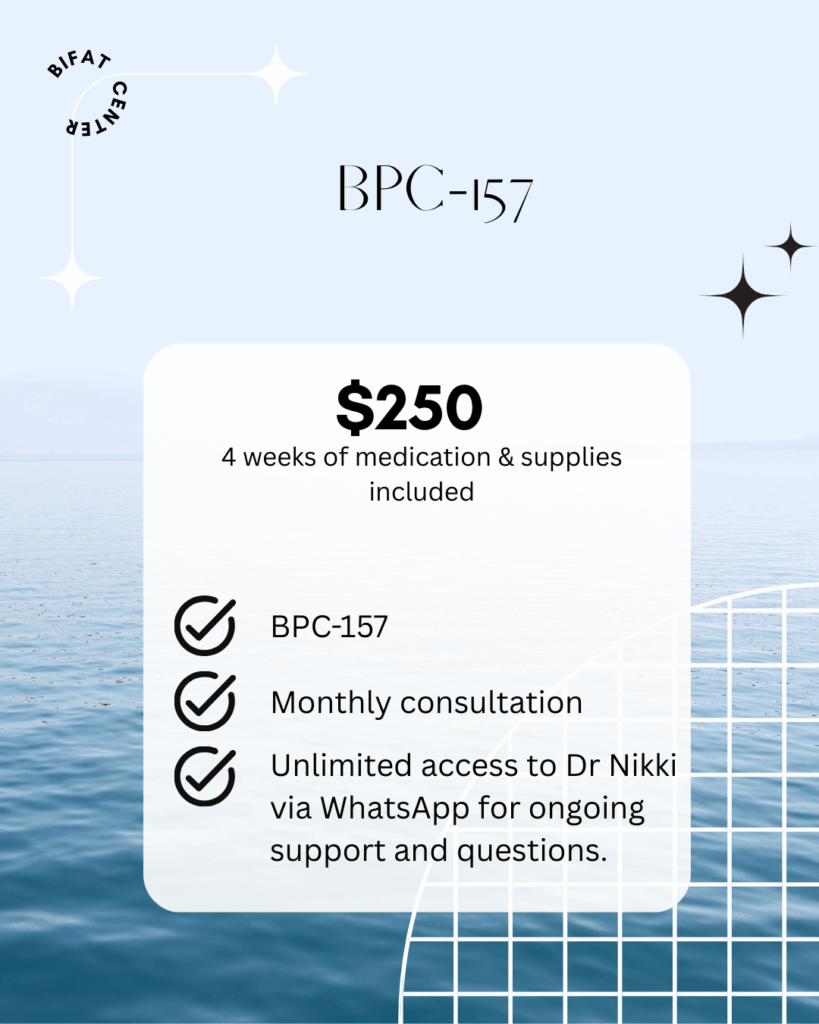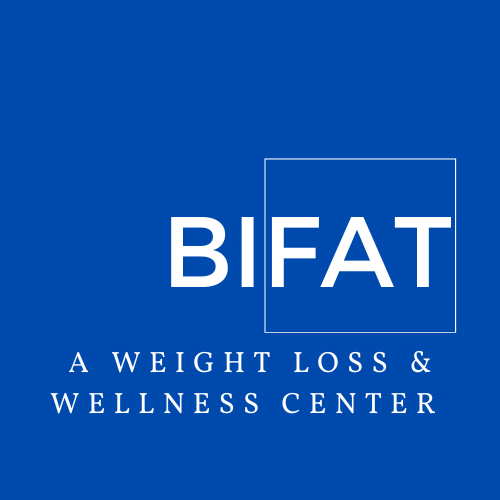***We accept USD, Lempiras, or Bitcoin***
We do NOT accept credit card, bank transfers, or online payments.

What is BPC-157, and how does it work?
BPC-157 is a 15-amino acid peptide made from “body protection compound” (BPC) found in human stomach digestive juices.
BPC-157 works systemically (throughout the entire body) to stimulate the formation of new blood vessels (angiogenesis). This helps to increase blood flow to damaged tissues and accelerate healing. It can even stimulate the production of collagen and other proteins that are important for tissue repair.
But that’s not all. BPC-157 blocks the production of pro-inflammatory cytokines (proteins), which can help reduce inflammation and promote healing.
It also protects cells from damage caused by oxidative stress (when there are too many free radicals and not enough antioxidants). This helps cells survive and speeds up the healing process.
Who is BPC-157 for?
- Athletes or individuals dealing with injuries (e.g., knee or shoulder pain, tendonitis, or muscle strains)
- People with back pain caused by inflammation (e.g., back muscle strains, degenerative disc disease, or arthritis)
- People with osteoarthritis or rheumatoid arthritis who experience joint pain, stiffness, or swelling
- People with gut microbiome issues or gastrointestinal conditions such as stomach ulcers, leaky gut, irritable bowel syndrome (IBS), Crohn’s disease, or ulcerative colitis
- People with skin burns
- People with corneal or head injuries
- People with brain fog and fatigue
Who shouldn’t take BPC-157?
Adolescents and children who are younger than 18 shouldn’t use BPC-157. This product isn’t for anyone who is pregnant, may become pregnant, or breastfeeding.
BPC-157 should not be taken by individuals with a previous or current history of cancer, tumors, or fibroids with a blood supply (such as uterine and ovarian fibroids), liver hemangiomas, or a history of clotting disorders (such as deep vein thrombosis or pulmonary embolism).
What are the common side effects of BPC-157?
Side effects of BPC-157 are rare, but some individuals have reported dizziness, headache, or upset stomach. Some people may also experience injection site side effects such as bruising, redness, or pain.
How do I take BPC-157?
BPC-157 should be injected under the skin (subcutaneous injection). The injections can be done at home. Typically, BPC-157 is injected one or two times daily depending on the specific condition being treated or the severity of the injury.
FREQUENTLY ASKED QUESTIONS ABOUT BPC-157
Where can I inject BPC-157?
You can inject BPC-157 into the fatty tissue of your upper arms, stomach, or top of your thigh. In some cases, people may inject BPC-157 into the fatty tissue around the injury site.
Should BPC-157 be cycled?
There is no definitive answer regarding whether BPC-157 should be cycled. Typically, individuals take BPC-157 for up to 12 weeks (3 months), followed by a one-month break.
What is the dose of BPC-157?
The dosage of BPC-157 varies based on the condition or type of injury being treated. At BIFAT Center, your healthcare provider will determine the most appropriate dosage for you.
Where should I store BPC-157?
BPC-157 should be stored in the refrigerator.
How long does it take to see results with BPC-157?
The timeline for experiencing results with BPC-157 can vary depending on individual factors and the specific condition being treated. While some individuals may notice improvements within a few days, most people typically observe positive changes within a few weeks.
Is BPC-157 safe?
Human studies on BPC-157 remain limited. But keep in mind that BPC-157 has a short half-life of approximately 4 hours (the amount of time it takes for half of the peptide to be eliminated from the body). Because of this, the risk of long-term effects is minimal as the peptide is quickly absorbed and cleared from the body.
Many animal studies show that BPC-157 helps accelerate wound healing and soft tissue injuries. It has also been shown to improve gut, bone, and joint health.
Remember that BPC-157 is derived from human gastric juices, which contributes to its overall tolerability. Generally, it’s considered safe to take, although some individuals may experience side effects such as bruising, redness, or itching at the injection site.
Is BPC-157 FDA-approved?
No. Supplements like BPC-157 aren’t approved by the FDA. We get our peptides from an FDA-registered manufacturer that follows all Good Manufacturing Process guidelines in addition to third-party testing for purity and potency. This ensures the quality and safety of our peptides.
Is BPC-157 a steroid?
No, BPC-157 is not a steroid. It’s a naturally occurring peptide found in human gastric juice. Steroids, on the other hand, are synthetic hormones.
Is BPC-157 a pain medication?
No, BPC-157 is not a pain medication. It has been shown to decrease pain in injured areas. It does so by aiding in the healing process, which may lead to a reduction in pain and discomfort.
Can BPC-157 cause weight gain?
There is no evidence to suggest that BPC-157 causes weight gain.
Does BPC-157 help with long COVID?
There is some evidence suggesting that BPC-157 may be beneficial for individuals experiencing long COVID. A small study published in 2022 observed improvements in symptoms associated with long COVID, such as fatigue, shortness of breath, and brain fog, following BPC-157 treatment.
Does BPC-157 affect the immune system?
One potential benefit of BPC-157 is its ability to reduce inflammation, which may support overall healing and health by aiding the body in functioning more effectively. BPC-157 does NOT weaken your immune system.
Can I take BPC-157 along with semaglutide for weight loss?
Yes. There are no documented drug interactions between semaglutide and BPC-157.
Is BPC-157 available in oral capsules?
Yes, we hear you! BPC-157 comes in oral capsules too, but we don’t have those on hand at this time.
Here at the BIFAT Center, we get it – needles aren’t everyone’s cup of tea. That’s why we thoughtfully considered offering BPC-157 in oral form for those who prefer it.
But here’s the scoop: while oral capsules are an option, you may not absorb 100% of the oral BPC-157 dosage due to metabolism and digestive enzymes in the stomach. Also, injecting a BPC-157 dosage is a little more efficient and faster-acting compared to BPC-157 oral capsules.
